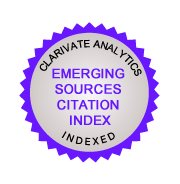Effects of Fiscal Policy and Institutions on the Economic Growth of Asian Economies: Evidence from Dynamic Panel Data Analysis
Keywords:
Economic growth, institutions, aggregate of government expenditure, aggregate of other fiscal variables, dynamic panel cointegrationAbstract
This paper investigates the effects of fiscal policy and institutions on the economic growth of Asian economies through the application of the GMM-SYS approach to dynamic panel estimator as a preference analysis. It examines two different channels through which fiscal policy can affect long-run economic growth in Asia. The first channel is when aggregate government expenditure, aggregate of other fiscal variables, and institution affect the real per capita GDP, and the second channel is to determine the role of institutions on the real per capita GDP. The dynamic panel data result, especially GMM-SYS, established a long-run relationship between fiscal policy, institution, and economic growth. We found positive and statistically significant impact of aggregate of government expenditure and aggregate of other fiscal variables and institution on real per capita GDP. Furthermore, we found that there is a role of institutions on the real per capita GDP.
Additional Files
Published
30-06-2009
How to Cite
Abdullah, H., Habibullah, M. S., & Baharumshah, A. Z. (2009). Effects of Fiscal Policy and Institutions on the Economic Growth of Asian Economies: Evidence from Dynamic Panel Data Analysis. International Journal of Management Studies, 16(1), 185–212. Retrieved from https://e-journal.uum.edu.my/index.php/ijms/article/view/9963
Issue
Section
Articles












